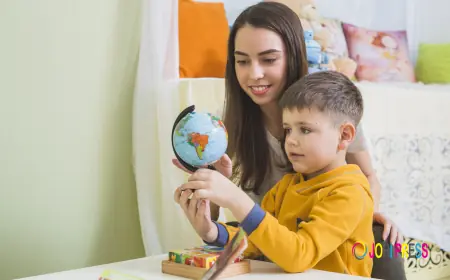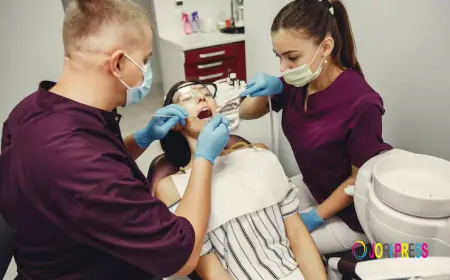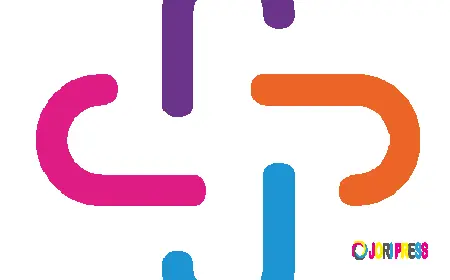Helping Young Children Thrive with aba for toddlers

Every child grows and learns at their own pace, but some toddlers may need extra support to build important communication, social, and behavioral skills. That’s where aba for toddlers becomes a valuable resource for families looking for effective, science-based treatment. Applied Behavior Analysis (ABA) is a therapy that helps children learn meaningful skills through structured techniques, positive reinforcement, and consistent guidance. When started early, ABA can greatly improve a toddler’s development and independence.
This blog will help you understand what aba for toddlers is, why early intervention matters, what happens during therapy, and how parents can be involved every step of the way.
What Is ABA for Toddlers?
ABA for toddlers uses play-based learning and behavior strategies to support developmental progress. Therapists work with toddlers to improve many essential skills such as:
-
Communication abilities (like gestures, words, requests)
-
Social interaction (like sharing, eye contact, taking turns)
-
Daily living skills (like brushing teeth, dressing, eating with help)
-
Reducing challenging behaviors (like tantrums, hitting, or frustration)
ABA focuses on understanding why certain behaviors happen and finding the best ways to replace them with positive and functional alternatives. Toddlers learn step-by-step through encouragement and success—not punishment.
Why Start ABA Early?
Using aba for toddlers offers powerful benefits because early childhood is a critical learning period. A toddler’s brain is rapidly developing, which means they can absorb and learn skills faster than later in life. Early intervention helps:
-
Build stronger communication pathways
-
Improve social engagement from a young age
-
Reduce behavioral struggles before they become habits
-
Increase independence over time
-
Prepare children for preschool or kindergarten environments
Starting ABA sooner allows toddlers to gain confidence and build a foundation for long-term success.
Where Does ABA Happen?
ABA for toddlers can take place in a variety of helpful settings, including:
-
At home — where toddlers feel safe and comfortable
-
In a clinic — with structured learning spaces
-
In the community — parks, play centers, or school environments
Many families choose ABA at home, especially for toddlers, because it helps them learn skills that directly apply to everyday family routines.
What Happens in ABA Sessions?
ABA therapy sessions for toddlers are designed to feel like play while still being structured and meaningful. Here’s what commonly takes place:
1️⃣ Assessment and Goal Setting
A trained therapist observes the toddler, understands their strengths and challenges, and creates goals unique to their needs. Goals may focus on speech, behavior, or self-help skills.
2️⃣ Individualized Treatment Plan
Every child is unique. ABA for toddlers incorporates activities that match the toddler’s interests, making learning fun and motivating.
3️⃣ Teaching New Skills
Therapists break skills into small steps. Toddlers practice skills through simple tasks and everyday moments like snack time, playtime, and family routines.
4️⃣ Positive Reinforcement
Right behaviors are rewarded with things toddlers love—like snacks, high-fives, toys, or fun praise. This helps them want to repeat the behavior.
5️⃣ Tracking Progress
Therapists observe and record progress regularly to see what is working and what needs adjustment.
What Skills Does ABA Help Toddlers Develop?
ABA for toddlers supports growth in key developmental areas:
✅ Using sounds and words
✅ Understanding instructions
✅ Eye contact and joint attention
✅ Play skills, sharing, and turn-taking
✅ Following routines in the home
✅ Feeding and bathroom routines
✅ Reducing frustration and tantrums
✅ Building independence with small tasks
By strengthening these skills early, toddlers become better prepared for social interactions and future schooling.
Parent Involvement in ABA
Parents are an essential part of success. In fact, ABA encourages caregivers to learn strategies so they can support progress outside of therapy. Parent involvement may include:
-
Observing sessions to understand methods
-
Practicing skills during daily activities
-
Using the same positive reinforcement techniques
-
Communicating regularly with therapists
With aba for toddlers, therapy doesn’t stop when the therapist leaves—the home becomes a learning environment full of opportunities.
How Long Does ABA Therapy Last?
Because every toddler learns differently, duration and frequency of sessions vary. Some toddlers may benefit from a few hours per week, while others may have more intensive schedules. The goal is always consistent progress and long-term development.
Common Myths About ABA for Toddlers
Let’s clear up a few misunderstandings:
❌ ABA is not a strict or robotic method
✅ It is playful, engaging, and child-centered
❌ ABA forces children to act a certain way
✅ It teaches functional behaviors that help them thrive
❌ ABA only helps with behavior problems
✅ It supports communication, learning, and independence
When guided by trained professionals, ABA is compassionate, supportive, and tailored to each toddler’s personality.
Final Thoughts
ABA for toddlers is a powerful early intervention tool that empowers children with important skills they will use throughout life. The therapy focuses on celebrating success, encouraging positive behavior, and helping children connect with others in meaningful ways. With the right therapist, supportive caregivers, and a structured plan, toddlers can grow stronger in their communication, learning, and social engagement.
If your child is showing developmental delays or needs help learning new skills, taking the step toward aba for toddlers can make a real difference. The earlier the support begins, the greater the opportunity for long-lasting success.
What's Your Reaction?
 Like
0
Like
0
 Dislike
0
Dislike
0
 Love
0
Love
0
 Funny
0
Funny
0
 Angry
0
Angry
0
 Sad
0
Sad
0
 Wow
0
Wow
0


















































